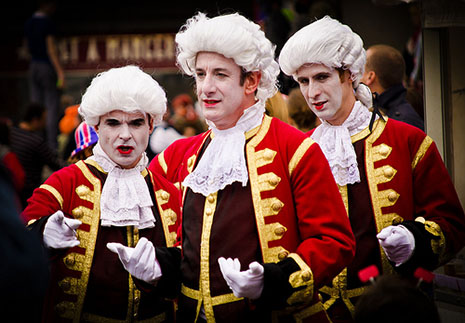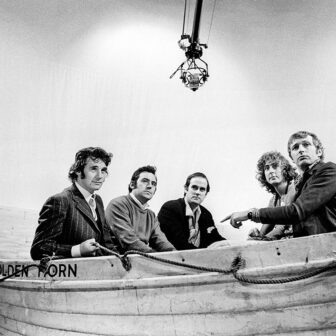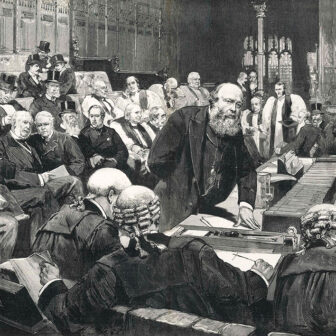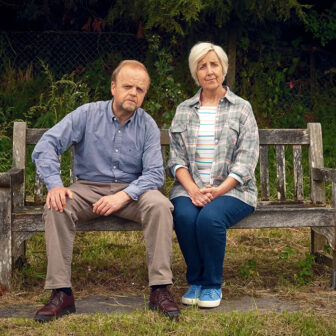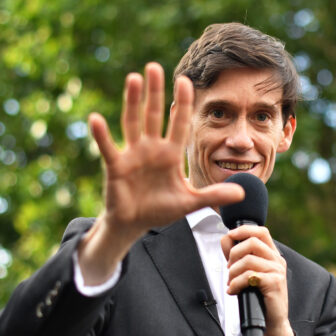If any enterprising self-starter is looking for a gap in the market in London this northern-hemisphere summer, then offering therapy for “event exhaustion” might prove a lucrative sell. A city rich in attraction and spectacle even in normal times seems abundant to an extraordinary degree in mid 2012. The celebration of Queen Elizabeth’s sixty years on the throne, the Olympic Games, and England’s participation in the European football championship (always a consuming national psychodrama) are but the most compelling – or perhaps just unavoidable – highlights.
Such state ceremonials and sporting tournaments would usually command near-universal public and media attention. In this exceptional season, though, they face rare competition from prominent legal and political theatrics: a formal inquiry into media ethics provoked by revelations of industrial-scale phone-hacking by British newspapers (most notoriously so far, those under the ownership of Rupert Murdoch’s News International); the eurozone’s deep crisis (crucial to Britain, even though it is not part of the single currency); and the buffeting of a Conservative–Liberal Democrat government that, two years into its five-year term, has lost several of the qualities sound administrations most need – coherence, touch, momentum and effective results.
There are, of course, clear differences between the two kinds of event. The monarch’s “diamond jubilee” and the Olympics offer themselves as inclusive national–global festivities, whereas Lord Leveson’s inquiry and the government’s troubles are infused with political partisanship. Their respective “communities of interest” also vary. Only a small proportion of the enormous crowds that lined the River Thames on 3 June to see a flotilla of 1000 boats led by Her Majesty’s refitted pleasure-barge Spirit of Chartwell will be as interested in studying the possible impact of a “Grexit” – Greece leaving the eurozone – and the bailout of Spanish banks, or in parsing the testimony of Gordon Brown and David Cameron at the media hearings.
Yet the royal–sporting and legal–political dramas do overlap. Both involve huge amounts of money; both are surrounded by political decision-making and calculation at the highest level; and both are scrutinised with equal intensity by London’s power and media networks for signals of the public mood and the political weather. Taken together, they also reinforce the sense – shared inside and beyond the city – that London’s mix of wealth, opportunity, people and magnetism increasingly disconnects it from other parts of the United Kingdom.
Halfway through 2012, London’s self-projection carries an echo of the Woody Allen character who tells his intended beau: “I can’t keep up this level of charm – I’ll have a heart-attack!” Perhaps then it’s unsurprising that so many citizens, at least where the diamond jubilee is concerned, appear to have made the choice to tune out, turn in, take off – or (in lieu of that therapy) write furious letters to the Guardian or Independent about how their country rivals North Korea in the mass orchestration of obsequious loyalty.
WHEN the carnival is over, the serious policy questions facing the Conservative–Liberal Democrat government will remain as they are now: the authority and reach of the state in advance of Scotland’s independence referendum in 2014, domestic security, a swathe of reforms in various degrees of trouble, and above all an economic policy that is visibly failing. All these concerns are part of the political backdrop to the season’s diversions, sometimes in oblique and subtle ways.
The four-day centrepiece weekend of the Queen’s anniversary early this month is an illustration. The sophisticated planning of a range of official events was everywhere visible. (As well as the river pageant there was a service at St Paul’s cathedral in honour of the Queen’s reign, a well-staged pop-concert featuring some of the era’s hardiest perennials, and a carriage procession to Buckingham Palace followed by the “core” family’s balcony appearance.) The attendant throngs – which in the areas I was able to penetrate included many overseas tourists and foreign students based in Britain – were jaunty, extravagantly attired, multicultural, and playfully conscious of their own role in the overall performance. (The ubiquitous, lazy trigger-words those letter-writers and scornful commentators use to describe them – “fawning,” “grovelling” and “orgy of deference” – couldn’t have survived a minute’s encounter with the reality.)
The Union Jack motif, whose appropriation by right-wing extremists long made it toxic to many in the mainstream, was everywhere – on handbags and hairpieces, skirts and face decorations, shoes and t-shirts, fingernails and parasols, flags and scarves (including hijabs). The brief “cool Britannia” cult of the early Blair years has given way to a “retro Britannia” craze that filters nostalgia-kitsch (drenched in 1940s and, increasingly, 1950s reference) through modern branding and design. This aesthetic rejuvenation endorses the crown by a sort of mutual symbolic reinforcement. (“Talking of Shakespeare, we’re missing the Queen,” the playwright Alan Bennett has a character say à propos the TV coverage of her coronation in 1953.)
Beyond London, there were enough street parties and local gatherings to save honour, the majority of them in England’s south and midlands. The broadcast media provided the usual reliable comfort-blanket, though the BBC – caught as so often these days between lost gravitas and vacuous populism – was assailed for its banal coverage of the less-than-televisual (and, in the event, drenched and shivery) boat procession.
The sheer effectiveness of the authorities’ crowd-management techniques was striking – perhaps not surprisingly, as it has been honed in recent years by intensive work in police academies and research centres, informed by scholarship in a range of disciplines, and tested in confrontations with (in particular) student protesters. Admittedly this was a horde more likely to play with its periscopes than to topple metal barriers in order to glimpse a royal hat or horse. But the combination of elements – zonal deployment of police and private-security staff, choreographed closures of streets and parks that both prescribe and limit people-flow around central London, clear leadership and internal communication, and constant assessment and surveillance – was evident. Since the London transport bombings of 7 July 2005, which killed fifty-two passengers on the day after the Olympic award was announced, the security planners have got serious.
The systems that enable a million people to gather in a small area of central London without incident or injury operate in the name of a balance between security and freedom. They also entail the confinement of spontaneity and dissidence. London is both a post-imperial and a profoundly unequal city; and it is becoming more unequal, partly as the result of a huge influx of the wealthy – from Russia, the Gulf, and the Sinosphere – in search of a safe haven. The combination makes its long history of great mass assemblages in Trafalgar Square and Hyde Park, from the Victorian era’s Chartists and trade unionists to the post-1945 era’s anti-nuclear, anti-war and anti-apartheid movements, seem ever more distant.
As the looting riots and the Occupy protests of 2011 in different ways confirm, London will never be an insurgent city. But the response to these and other eruptions (including decades of terrorism) cumulatively circumscribes its people. The combination of new forms of containment and that crucial and often missed component, a recomposed citizenry, suggests that central London’s everyday democracy is becoming post-civic.
Some good critical work registers some of these changes in the context of the vast building, land-development and resettlement program in preparation for the Olympics. Anna Minton’s Ground Control: Fear and Happiness in the Twenty-First Century City maps the wider transformation of much public into private (and commercial) space. The “psychogeographer” Iain Sinclair’s discursive Ghost Milk: Calling Time on the Grand Project uses literary, local and cultural history to embellish the case that the planting of the Olympic flag on his home territory is a sordid tale of appropriation. There are counterviews to Sinclair’s, pointing to the provision of local employment and sporting facilities, a sleek emporium next to the Olympic stadium in unfashionable Stratford, and the much-disputed promise of a favourable “legacy.”
(I visited Stratford in December, on the same day as spending time with the occupiers outside St Paul’s cathedral. The Westfield shopping mall – yes, built by the Australian company – was gleaming and packed with bubbly crowds of all ages and dozens of backgrounds. Walking through, I recalled reading two hours earlier a sign on one of the protest walls: “Imagine they built a shopping-centre and no one came.” Then I remembered Ernst Jünger: “What is true, and what is false, in all this?”)
It was easier to find dissent at the jubilee than near the Olympic zone. The campaign group Republic had announced that it would hold the “biggest and boldest anti-monarchy protest in modern times” to coincide with the Thames pageant. The designated site was beside London Bridge, near City Hall (still Boris Johnson’s fiefdom after his narrow re-election as London mayor in May). The cheerful few dozen I encountered held placards with slogans by turns clever (“Don’t Jubilee’ve It!”) and encrusted (“Citizen Not Subject”), though two handwritten ones had the authentic visceral touch: “Party Like It’s 1793” and “Mubarak, Gaddafi, Windsor – Unelected Leaders.” There was far more republican sentiment on display in the print media and radio – an acidulous denunciation of the “majestic delusion” by the Guardian’s Polly Toynbee wins the prize – though none whatever that took into account (let alone seriously) the modernisation of palace strategy and the regeneration of the monarchy’s appeal.
This want of imagination is fatal. The declaratory, amnesiac, always-at-first-principles approach of the modern republican “movement” is a waste of a good idea; critics of power need to understand, and be more intelligent than, their opponents; those who seek to advance a minority cause that nonetheless commands widespread emotive appeal must lead not pander, or else be trapped by the zealots. Thus is republicanism in Britain reduced to an attitude: a case study in what happens when people give up thinking in the present.
A FURTHER linkage between state ceremony and brute politics will become more visible in the first week of July, which the Queen will spend in Scotland as part of a year-long procession around her realm. For the media–political classes on both sides of the border, an occasion that could safely be ignored in quieter times acquires an extra charge in the context of the sharpening debate over Britain’s constitutional future.
The Scottish National Party government in Edinburgh, led by the wily first minister Alex Salmond, is intent on organising a referendum in autumn 2014 on whether the Scots want to move towards independence. The terms of this vote, and its constitutional implications, are now being discussed between Edinburgh and London. There is room for manoeuvre on both sides, especially over the definition of what “independence” means: Salmond’s party wishes to continue to use a common currency, possibly remain in NATO, and have the Queen remain head of the Scottish state.
Most opinion polls show pro-independence support at between 30 and 40 per cent, depending on how the question is posed. The “yes” side thus has a steep challenge, though the pro-union case – still in search of a positive narrative that can coalesce Scotland’s opposition parties (Labour, Conservative, Liberal Democrat) and counter Salmond’s breezy optimism – is less confident than these figures might suggest.
In this context, Conservative commentators and (more discreetly) politicians are already reading the success of the jubilee weekend as a sign that the Queen could be their ace in this great game. This conviction will doubtless be strengthened by the likelihood that the Scots, routinely less demonstrative in their affections and more indifferent to the jubilee (the paucity of street parties north of the border is much noted), will nonetheless rouse themselves to give the monarch a warm welcome. They might even, in an echo of the Irish during the Queen’s remarkable visit there in 2011, surprise themselves a little in the process.
Any conscious strategy to politicise the crown’s place in the constitutional debate would have potential blowback effects among the ever-alert Scots. In this phase of the Scottish argument, the Queen herself has been scrupulous in avoiding reference to the United Kingdom’s possible break-up (a contrast to her invitation in 1977 “to remind ourselves of the benefits which union has conferred”). But the question of whether and how the crown can serve the cause of preserving the union is being given intense attention at the most senior level.
At this delicate point, the opposition Labour Party leader Ed Miliband has opened a new flank, albeit largely by restating an old wish: that the English should on their own account become active participants in the discussion about Britain’s future and, more broadly, that “[we] should embrace a positive, outward looking version of English identity.” His speech on 6 June bore the influence of the party’s new policy strategist Jon Cruddas – among other singular characteristics, a declared admirer of Ben Chifley and Paul Keating; it was part of a campaign to create a more familiar public profile after two years in which a media-fuelled portrayal of Miliband as a stilted, geeky figure had been allowed to settle.
The more personal sections of the speech, entitled “Defending the Union in England,” belatedly tackled the obligatory modern rite-of-passage for the aspirant politician: crafting an appealing personal narrative and connecting it to a political agenda that can plausibly be seen as its outgrowth. So Miliband invoked his Jewish ancestry (which he reflected on at greater length in a thoughtful article in the New Statesman), his childhood as the son of immigrant parents (his father was the Marxist sociologist Ralph Miliband), and his affection for his constituency of Doncaster in post-industrial Yorkshire. His aim was to make the case that here was a man proud to be English and British (there was no talk of European), and that the openness of such “multiple allegiances” – in a Britain “where it is always possible to have more than one identity” – contrasts with the exclusivity of “the worst aspects of Scottish nationalism.”
The moment is well-chosen: the interregnum between diamond jubilee and European football tournament, when the English accomplish a collective public switch to their St George’s cross flag with a deftness their team would do well to emulate. The sentiments are a definite advance on the pained efforts of Gordon Brown during his brief tenure as prime minister (2007–10) to reaffirm an overarching conception of “Britishness” that (unlike Miliband’s version) seemed not to recognise the integrity of its constituents’ nationhood. They also indicate the territory Labour will mark out in the referendum campaign as it seeks – in collaboration with rival opposition parties north of the border – to prevent a Scottish breakaway, and thus the loss of much of its electoral heartland.
But this unstated political and electoral calculation, legitimate in its own terms, must become explicit. Its lack of policy imperatives is a weakness (Miliband has no interest in, for example, an English parliament as a channel of democratic sentiment); and its surplus of identity-talk (a Cruddas trademark shared with much of the culturalist left – the word appears twenty-four times in a short speech) buys fuzzy consent at the price of political clarity.
The core issues at stake in the debate about the United Kingdom’s future belong to the realm of politics, power, interest, representation, law and sovereign authority. The two governments at least seem to have understood this – even though neither will shrink from using other elements in the baggage-train (history, symbolism, emotion and “banal nationalism,” among them) where they can. But as the spectacles of 2012 help to launch yet another phase of the circuitous public discussion of “Britishness” and “Englishness” – not “Scottishness,” significantly – the centrality of politics to the next constitutional settlement, and the irrelevance of identity, will surely become more apparent.
THE Conservative-led government that emerged from “the election that everyone lost” in May 2010 has long seen this event-rich summer as pivotal in the fulfilment of its broader strategic objectives. A magnificent royal occasion and a successful hosting of the Olympics would allow it to proclaim to the world and its own people alike that “brand UK” was a global success story: a country that represented both glorious heritage and confident modernity, and whose evident renewal of this unique combination made it well-prepared for (and open to business in) the twenty-first century.
But the political reward of the message would be dependent on the equivalent success of its domestic program – above all, its economic policy – by the time of the next election in 2015. For an inexperienced administration, it was always going to be a tough challenge to cope with the post-2008 financial crisis in conditions where so many variables were outside its command. Much remains to be decided, though at this stage too much is going badly wrong for David Cameron’s government to make its high-stakes gamble look winnable.
The outcome of a story told in retrospect often looks fated, but what is intriguing about the two years of this government is how long fate took to seize it by the throat – and how pitiless its grip now seems. In fact, the honeymoon of around eighteen months is close to the standard period of grace during which any incoming British administration is informally allowed to blame major problems on its predecessor. If the pattern seems different this time, it may owe something to the unexpectedness of the transition of 2010 and the collective psychological readjustment that followed.
The coalition agreement forged between Cameron and the LibDem leader Nick Clegg committed the government to a five-year program of phased reduction of Britain’s public debt as a proportion of GDP, to be achieved by a mix of public spending cuts and market-led economic growth. An “emergency budget” in June 2010 and the announcement of major health, education, defence, welfare and employment reforms opened a bleak vista of long-term austerity, institutional turmoil, and abrasive conflict with trade unions and professional groups. Yet the government’s insistent message – that it was “clearing the mess” Labour had left behind – effectively went unchallenged. This was partly because Labour’s cumbersome internal processes meant that it took until September 2010 for Ed Miliband to be elected leader following Gordon Brown’s resignation (and much longer for him to establish a profile). And it was partly because a majority of voters found the government’s message plausible – even though, as Miliband’s combative deputy Ed Balls and steady former chancellor Alistair Darling pointed out, Labour had handled the 2008 crisis well and the economy had been growing modestly when it lost power.
The government’s resilient poll figures in 2010–11 seemed impervious to setbacks (dire economic figures, a series of policy u-turns), protests (by students over the imposition of tuition fees, by rioters in the four-day urban explosion), and scandals (the resignations of Cameron’s communications director, former Murdoch editor Andy Coulson, over the hacking scandal, and of the neo-conservative defence minister Liam Fox over an aide’s use of his position to lobby for private contracts). Even the inevitable jostling between coalition partners meant that to a great extent they jointly colonised the political space, a trend that Ed Miliband’s uncertain performance did little to counter. And as the tale of Labour’s culpability began to lose its sheen, the government – in particular its chancellor and chief strategist, the boyish plutocrat George Osborne – alighted on the escalating eurozone crisis as a new alibi for Britain’s economic anaemia.
An inert and even retracting economy, growing unemployment (most worryingly among the young), rising prices, static wages, higher utility bills, corroding savings, receding horizons, spreading insecurity – and yet, albeit amid general cynicism about politics tout court, a barely discomfited government. These were strange times. Surely they could not continue? Well, the strangeness remains but a major shift in the political terms of trade at last took place in late November 2011, when George Osborne’s interim budget report began to unravel under pressure of resistance to proposed tax reforms.
The sense of a dam being breached – confirmed by the hostile reaction to the annual budget in March 2012 – was heightened by a fresh tone of ridicule in the media, much of it focused on the atmosphere of cloistered privilege that attached to the government, and to Cameron and Osborne in particular. On the Conservative right, overlapping currents of small-state marketeers and European Union–exiteers became bolder in their scorn for Cameron’s lack of principle, tolerance of the LibDems, and – least forgivable for a Conservative leader – failure to win outright in 2010. The Occupy protests struck a social and intellectual chord, crystallising long-standing concerns about social inequality and blocked social mobility that extended to the business class and “one-nation” right (as in Ferdinand Mount’s The New Few, Or A Very British Oligarchy).
The coalition’s second winter was thus tougher than its first, and spring brought no respite. The English local elections of May 2012 were gloomy for the governing parties (especially for the LibDems, long shorn of the disaffected leftist support that boosted them in 2010) and good for Labour (whose leader’s greater assurance in parliamentary duelling was gaining him more favourable headlines). Labour’s poll lead began to widen, though it stayed in single figures. At the same time, the success of UKIP, a party of middle-England, anti-immigration Europhobes, and (in the northern city of Bradford) of Respect, a vehicle of the populist carpetbagger George Galloway, showed that discontent with Conservatives and Labour could find unsettling outlets.
As so often in Britain at times of political stress, a viral neologism (“omnishambles”) emerged to capture the prevailing wisdom about the government, and a single story-line (the Leveson inquiry into the “culture, practice and ethics of the press”) began to be seen as emblematic of the times. After initially hearing from a variety of (mainly “celebrity”) victims, the inquiry began to take evidence from leading establishment figures about the networks of political, media, financial and police power that developed during and since the Tony Blair era. It will conclude by making “recommendations on the future of press regulation and governance consistent with maintaining freedom of the press and ensuring the highest ethical and professional standards.”
Leveson’s focus may be the press, but the scale of what the inquiry is addressing (and the fact that witnesses give testimony under oath) means that the inquiry’s “real” object is no less than how Britain has been governed and misgoverned over a long period: a period in which Murdoch and his fellow proprietors wielded unexamined influence, prime ministers from Thatcher to Cameron surrendered judgement to favour, and a press transformed by social revolutions, elite churn and technological change lost its sense of public responsibility. Whatever the final recommendations, the response to the inquiry will test the capacity to come to terms with this history, address its abuses, and establish new principles and safeguards.
Some commentators doubt the traction of the hearings with the public. This could change if and when evidence of further illegal behaviour begins to be collated and investigated, and if this touches any of the high-profile individuals under scrutiny. Gordon Brown, George Osborne, John Major (Conservative prime minister, 1990–97), Alex Salmond, Nick Clegg, Ed Miliband and David Cameron are among the most recent to have taken the stand.
BRITAIN’S public life at present is an unrepeatable mix-and-mash of colliding energy flows. The serious underlying economic predicament, whose heart is unsustainable debt (though it has many other elements), overshadows them all. At some point, no one knows exactly when, there will be a reckoning. When it comes, all that has gone before – including this moment and these strange times – will acquire new shapes, which will bear as little relation to the current lived reality as today’s nostalgia-fest does to the actual experience of the 1940s and 1950s. But the times will have served their purpose: to keep everything as it was, so that everything can change. This is the way Britain, and especially England, works.
Too much is unresolved to be certain about how exactly people will react when the holiday from reality ends. But a Financial Times report of the rain-and-wind-lashed flotilla contains the generative grammar. It quotes a participant, Geoff Goddin, who joined five other “rather aged” magistrates on a four-oared skiff: “It was the typical British thing. There was an attempt to be regimented at the start, then a fair amount of improvisation. The line held up well… [then] we were overtaken by a number of boats that should have been behind us. With a bit of muddling and anarchy it came through.”
Somehow, Geoff Goddin doesn’t sound like a rising-to-the-global-challenge sort of fellow. Nor does he seem the kind of man who will allow himself to sink beneath the waves. His is the therapy that this country will continue to live by, until a better one comes along. •
